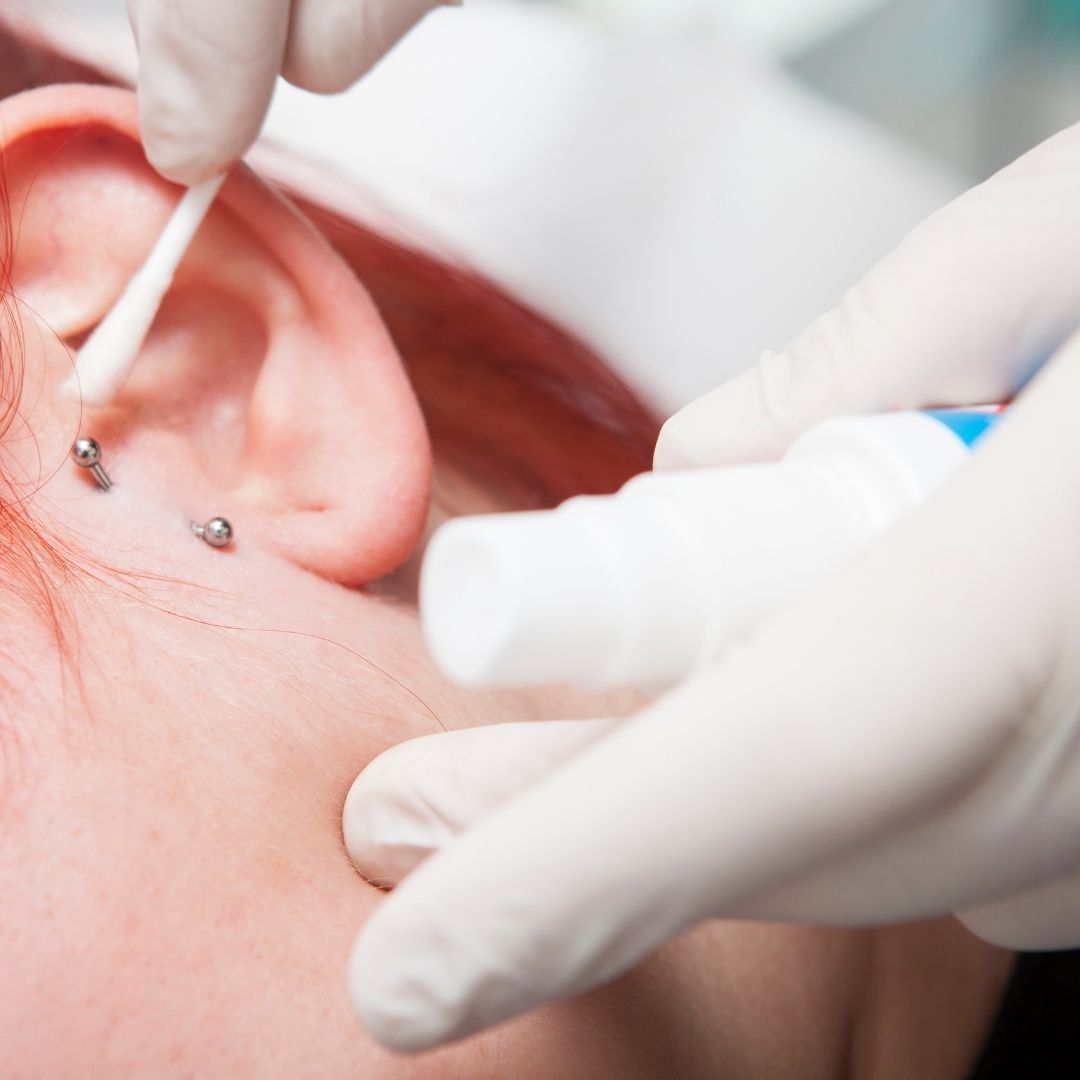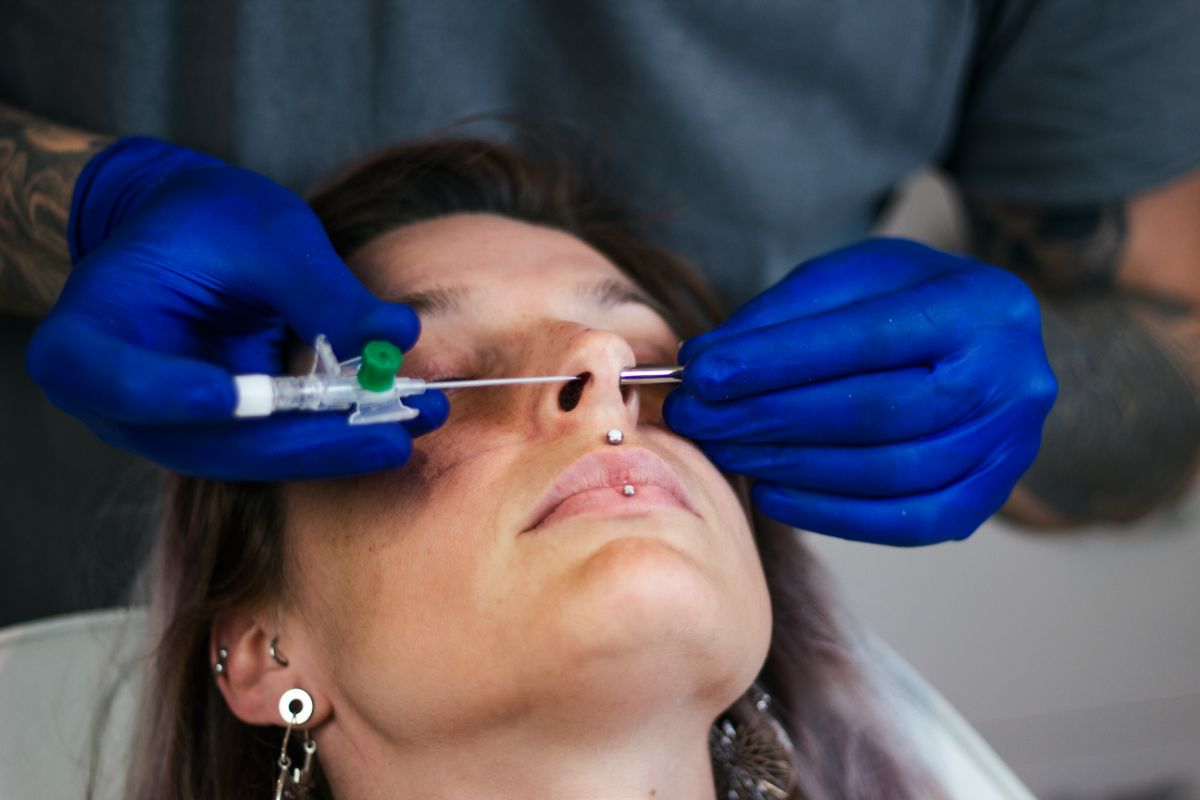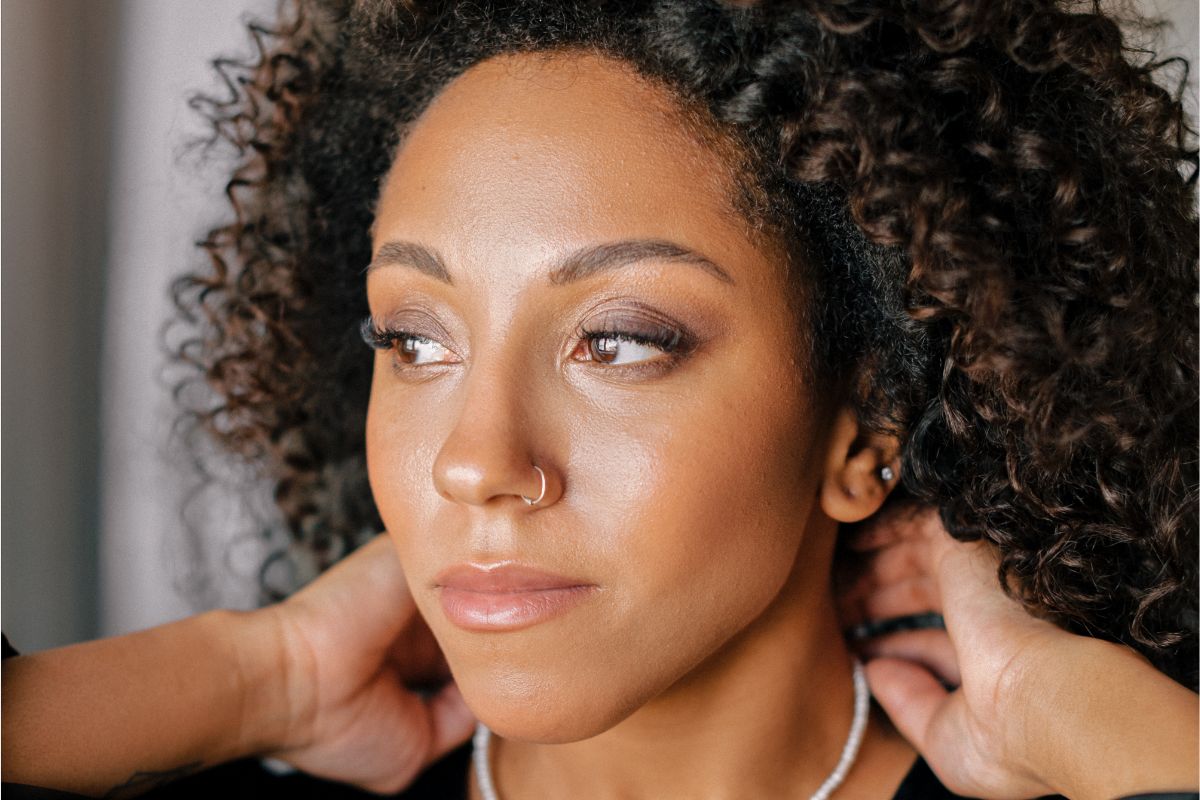Millions of Americans wear piercings in all parts of their bodies because why wouldn’t they? Body piercing is a form of artistic self-expression, much like tattoos. It’s a way of showing the world who you are through the arts. They can be addictive too!
According to professional body piercers, people like to see how far they can push themselves to the limits. Most of them start with earlobe piercings and then eventually move on to the nose and other parts of their bodies like nipples, genitals, belly buttons, etc.
Since it’s your body, you can do whatever you want with it. But, there is one thing you need to keep in mind. If you're going to add more piercings, make sure you clean and care for them to reduce your risk of infection.
When infection sets in, you’re opening yourself up to a plethora of complications that might jeopardize your health. The best way to avoid it is to follow proper aftercare guidelines.

How to Care for Your Piercings
All types of piercings follow the same guidelines. The following are some of the common guidelines when caring for your new piercing:
- Before touching your piercing, make sure you’ve already washed your hands with soap and water.
- The only time you’re allowed to touch your piercing is when you’re cleaning it.
- Body piercing experts suggest you clean your piercing using a saline solution at least two to three times a day.
- You may also use unscented antimicrobial soap. If you use a soap, make sure to rinse it well so that no soap residues are left on the site.
- Dry the newly cleaned piercing with a disposable paper towel. Do not use a cloth as it may contain germs or snag your jewelry.
You can keep your piercings clean by avoiding the following:
- Do not touch, fidget, or play with your piercing, as this can cause irritation, inflammation, and infection.
- Do not get your piercing in contact with any bodily fluids like saliva.
- Do not swim in pools, rivers, lakes, and hot tubs.
- When taking a bath, use the shower instead of the bathtub. Bathtubs tend to harbor bacteria.
- Keep beauty products away from your piercings like powders, perfumes, creams, and lotions.
- Don’t apply antibacterial ointments because they will delay the healing process.
What if you decide you don’t want it anymore? That’s the only time you can take your jewelry out. But, if you do that, you might interrupt the healing process. If in case you really want to remove your jewelry, you are still required to continue cleaning the site until you achieve full healing.
How about sleeping? Will your position interfere with the healing process? If you’re getting a facial or ear piercing, we recommend you place a newly washed t-shirt over your pillow and change the shirt daily. For a body piercing, wear loose clothing.

Ear Piercing Care Guide
Ear Piercings for Adults
The most common piercing is the earlobe piercing. Out of all piercing sites, the earlobe is the fastest to heal. However, the healing time depends largely on how well you care for your piercings.
During the first few days after getting your ears pierced, you will notice some redness, bruising, bleeding, and the site may feel a bit sore. It’s also normal to experience itching as well as a whitish fluid oozing from out of it.
Ear Piercings for Children
Some parents allow their kids to have their ears pierced. In fact, many parents pierce their children even before they turn one year old. However, medical doctors recommend you wait until your child is at least eight years old to reduce the risk of infection. This is because older children can follow directions better.
Other Concerns
Besides infection, there are several other things you need to look out for, such as piercing rejection, accidentally swallowing the jewelry and metal allergies.
If your child is getting a piercing, we think it would be best to choose gold to minimize your child's risk of developing an allergic reaction. Reports show that other metal types may cause itchiness and irritation, causing your child to scratch their ears.
Oral Piercing Care Guide
Did you know that many people love to get tongue piercings? So if this is going to be your next piercing project, be ready for some swelling. During the first few days, it’s normal for your tongue to swell, but the good news is that it heals pretty fast.
How do you clean a cheek or tongue piercing? You just need an antibacterial or antimicrobial mouthwash.
But, make sure the mouthwash is alcohol-free. While waiting for your piercing to heal, you should habitually rinse your mouth at least four to five times daily. Swish the mouthwash for at least one minute. Rinse your mouth after eating and before going to bed.
How about when you eat? Is it going to hurt? Professional piercers suggest you cut your food into bite-sized pieces for easy chewing. If you have a tongue piercing, keep your tongue level when you chew.
For lip and cheek piercings, don’t open your mouth too wide. It also helps to avoid consuming hot, acidic, salty, and spicy food and drinks. Cold food and beverages can help lessen the swelling.
Cartilage Piercing Care Guide
Cartilage piercings are extremely popular, but they come with risks. The most sought-after cartilage piercings are the septum and the upper ear. Unfortunately, these locations tend to bleed more.
You must clean your cartilage piercings because if they get infected, the infection can lead to tissue death or necrosis. Necrosis is more common in nose piercings because your nose attracts bacteria.
Not to worry because you can avoid these ugly complications by cleaning your piercings daily. If you’re getting a septum piercing, we suggest you load up on vitamins so you won’t get a cold. And, if you suffer from allergies, it’s best if you stay away from triggers.
Takeaway
In a nutshell, all piercings need to be cleaned daily. Almost all of them share the same guidelines except for oral piercings.
Keeping your piercings clean is paramount because, during the healing process, the site is still vulnerable to infection. Unfortunately, when infection sets in, there’s a big chance complications will follow. So don’t let that happen.
As much as possible, do whatever you can to keep your piercings infection-free. After getting your piercing, ask your piercer what you need to do and what you need to avoid to ensure that your new piercings heal well.
Keep in mind that the healing time will take several weeks or months, depending on the location. Therefore, you have to discipline yourself to follow aftercare instructions diligently.
If you're looking for a safe product to clean your piercings, Dr. Piercing Aftercare can help.

At Dr. Piercing Aftercare, we've developed convenient medicated swabs that you can use to clean your piercings and keep infection away. We are proud of our products. They are made and tested in a cGMP compliant and FDA-registered facility in America.
We use advanced technology on our swabs for easy application. Each pack contains thirty-six medicated swabs that are proven and tested to promote your body's natural healing process while preventing infection. Contact us today, or check out our website to learn more about our products.





